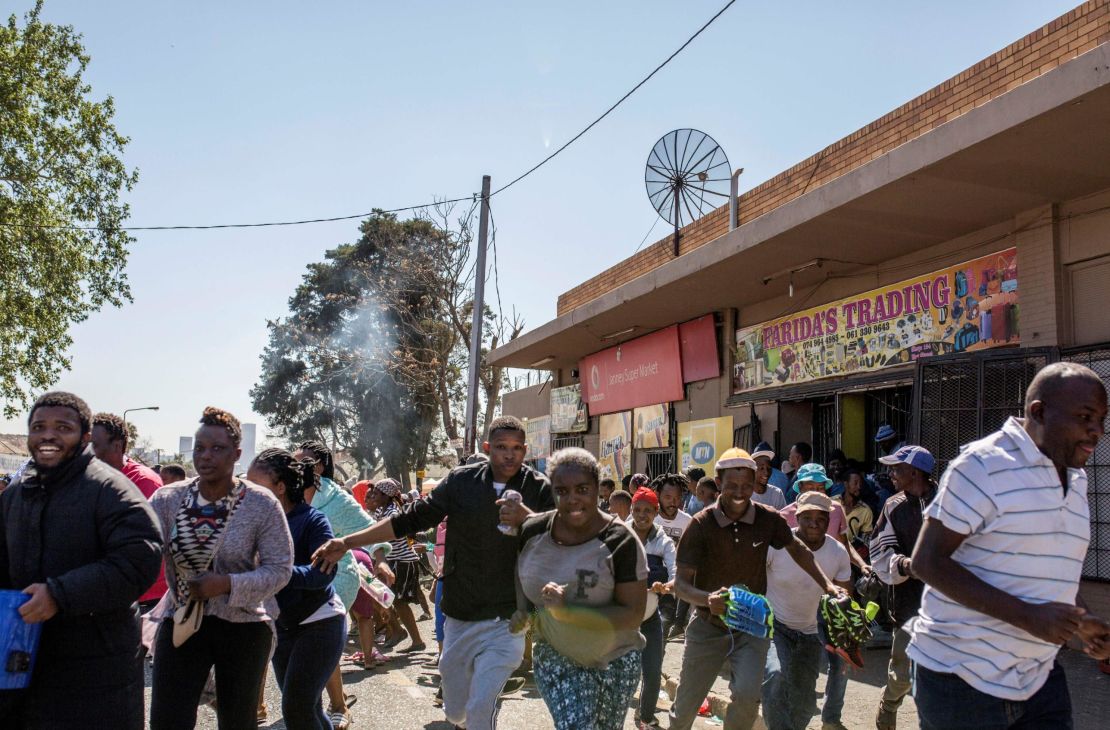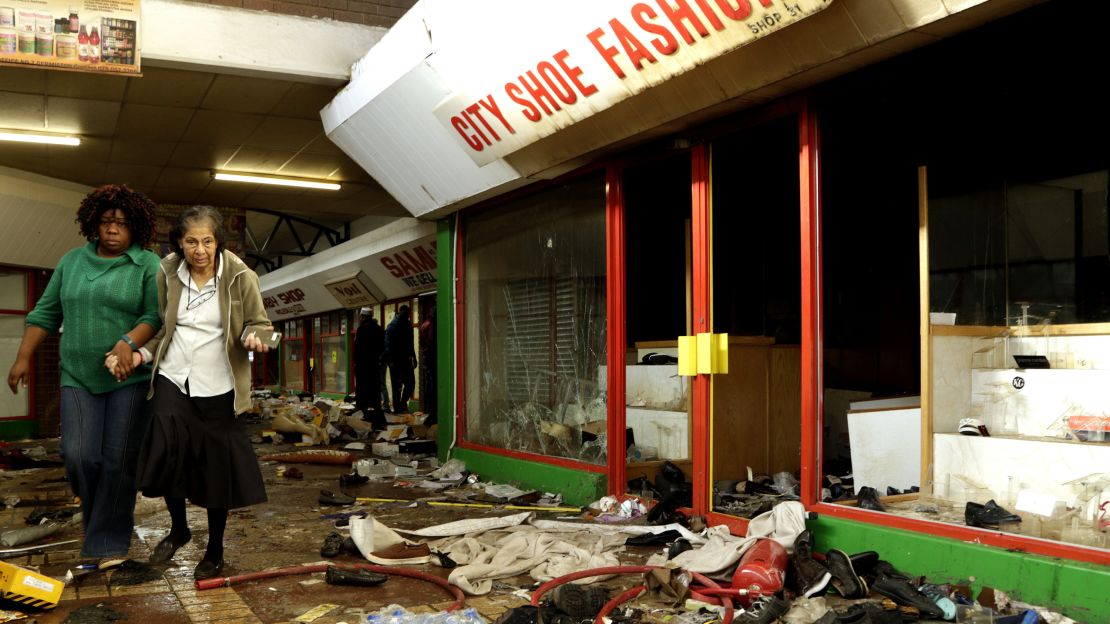South African President Cyril Ramaphosa has called for the arrest of those involved in a spate of attacks targeting foreign-owned businesses in the country.
Ramaphosa said in a statement that he had convened a security meeting with law enforcement agenciesto stop “these acts of wanton violence.”
He said there was no justification for the attacks and warned that violence on foreign businesses could trigger xenophobic attacks against South Africans living abroad.
“There can be no justification for any South African to attack people from other countries.” Ramaphosa said in a series of videos on his official Twitter account. “We are against xenophobia. These attacks are completely against the rule of law.”

Five people have been killed in the unrest that started last week in Tshwane, Pretoria. By Tuesday, police had arrested 189 people allegedly involved in violence that flared Sunday in Johannesburg.
Mobs looted, burned and vandalized shops, properties and vehicles, South African police said. Police fired rubber bullets in some areas to disperse the crowds. Many foreign owned businesses were targeted in the violence.
Criminal gangs had also taken advantage of the chaos to break into other, locally-owned businesses, police added.
“It’s clear it’s pure criminal elements that are taking advantage of a volatile situation,” said South Africa Police Minister General Bheki Cele.
Xenophobic and anti-immigrant attacks are not new in South Africa. Demonstrators forced hundreds of foreigners from their homes and looted some businesses in Durban in April. They claimed that foreigners had taken jobs that should have been filled by locals.
In 2017, violent anti-immigrant protests broke out in the capital Pretoria and in 2015, several people were killed and thousands fled after xenophobic attacks across the country.
In response to the recent violence, the African Union – an intergovernmental body consisting of all 55 African states – issued a statement Tuesday condemning “in the strongest terms, the incidents of violence against nationals of fellow African countries in South Africa.”

The Nigerian government summoned South Africa’s High Commissioner to Nigeria Bobby Moroe on Wednesday, saying some of its citizens had been targeted in the attacks.
President Muhammadu Buhari said he was deeply concerned about the situation, and also sent a delegation to meet with Ramaphosa over the attacks.Buhari is due to travel to South Africa next month.
In a statement, the Zambia High Commission in Pretoria advised Zambian truck drivers to avoid working in South Africa, saying they have faced “physical attacks and threats from their South African counterparts.”
South African truck drivers took part in a nationwide strike on Sunday and Monday, protesting against the employment of foreigners in the industry.
Police said they arrested at least 20 people on Monday in connection with attacks on trucks and truck drivers in and around the port city of Durban, where strikers had blocked roads.
Human Rights Watch last week called on the South African government to “take urgent measures” to protect foreign national truck drivers, who they say face xenophobic violence.
CNN’s Helen Regan contributed to reporting.
